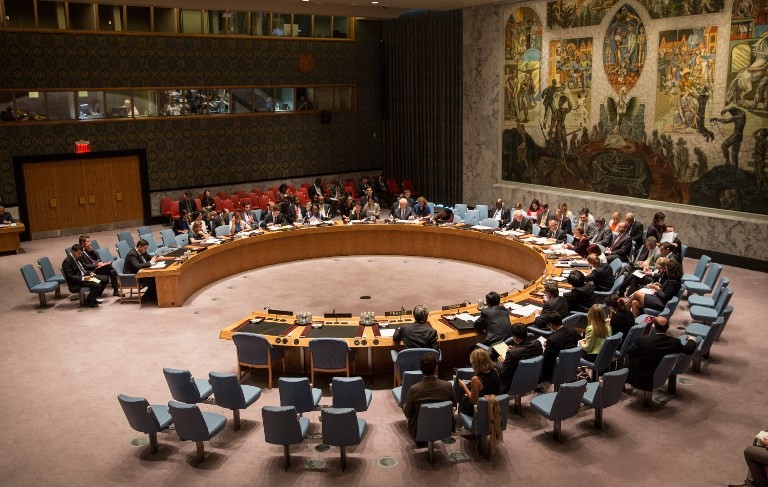Popular Reads
Top Results
Can't find what you're looking for?
View all search resultsPopular Reads
Top Results
Can't find what you're looking for?
View all search resultsIndonesia to highlight Palestine conflict, improve women's role in peacekeeping in UNSC
Change text size
Gift Premium Articles
to Anyone
A
fter winning a non-permanent seat at the United Nations Security Council, Indonesia will push for "a habit of dialogue", to improve women's involvement in peacekeeping troops and highlight the Palestine conflict, says Foreign Minister Retno LP Marsudi.
On Friday, Retno, who was on the brink of tears and had a quiver in her voice, said Indonesia would seek to strengthen an ecosystem of peace and global stability,
“The world had thankfully accepted Indonesia’s contributions to peace,” she added. “Indonesia’s democracy can be used as an asset to play an active role in the Security Council.”
Retno said Indonesia would also be urging other council members to work more effectively.
“Indonesia will push for the habit of dialogue for the peaceful resolution of conflicts,” she added in a video conference after Friday’s poll. Seeking a comprehensive global approach to combat terrorism and radicalism is also on the agenda.
Retno said Palestinian statehood would be one of Indonesia’s main priorities.
Indonesia scored a big diplomatic victory by securing the two-year term, after beating the small island nation of the Maldives in a secret ballot held during the 93rd session of the UN General Assembly in New York.
It secured 144 votes, or more than two-thirds of the ballots cast, which is the minimum requirement to secure a seat as a non-permanent member of the council. The Maldives only managed to secure 46 votes from the 190 member states that voted during the assembly.
In an estimate earlier this year, officials said Indonesia had secured around 120 votes of confidence.
The victory caps an intensive two-year campaign full of overseas visits, dinner receptions and early breakfast meetings to lobby support from representatives of various UN member states.
The Security Council comprises five permanent members -- China, the United Kingdom, France, Russia and the United States -- as well as 10 non-permanent members representing Africa, the Asia-Pacific, Eastern and Western Europe, Latin America and the Caribbean.
The current non-permanent members are the Ivory Coast, Equatorial Guinea, Kuwait, Peru, Poland, Bolivia, Ethiopia, Kazakhstan, the Netherlands and Sweden. Non-permanent members serve a two-year term and are elected in a staggered cycle every year.
Indonesia will replace Kazakhstan, which is to conclude its term at the end of the year. It will be joined by South Africa, Belgium, Germany and the Dominican Republic, which also won seats for the 2019 and 2020 term to sit at the horseshoe-shaped table used by the 15-member council during meetings










